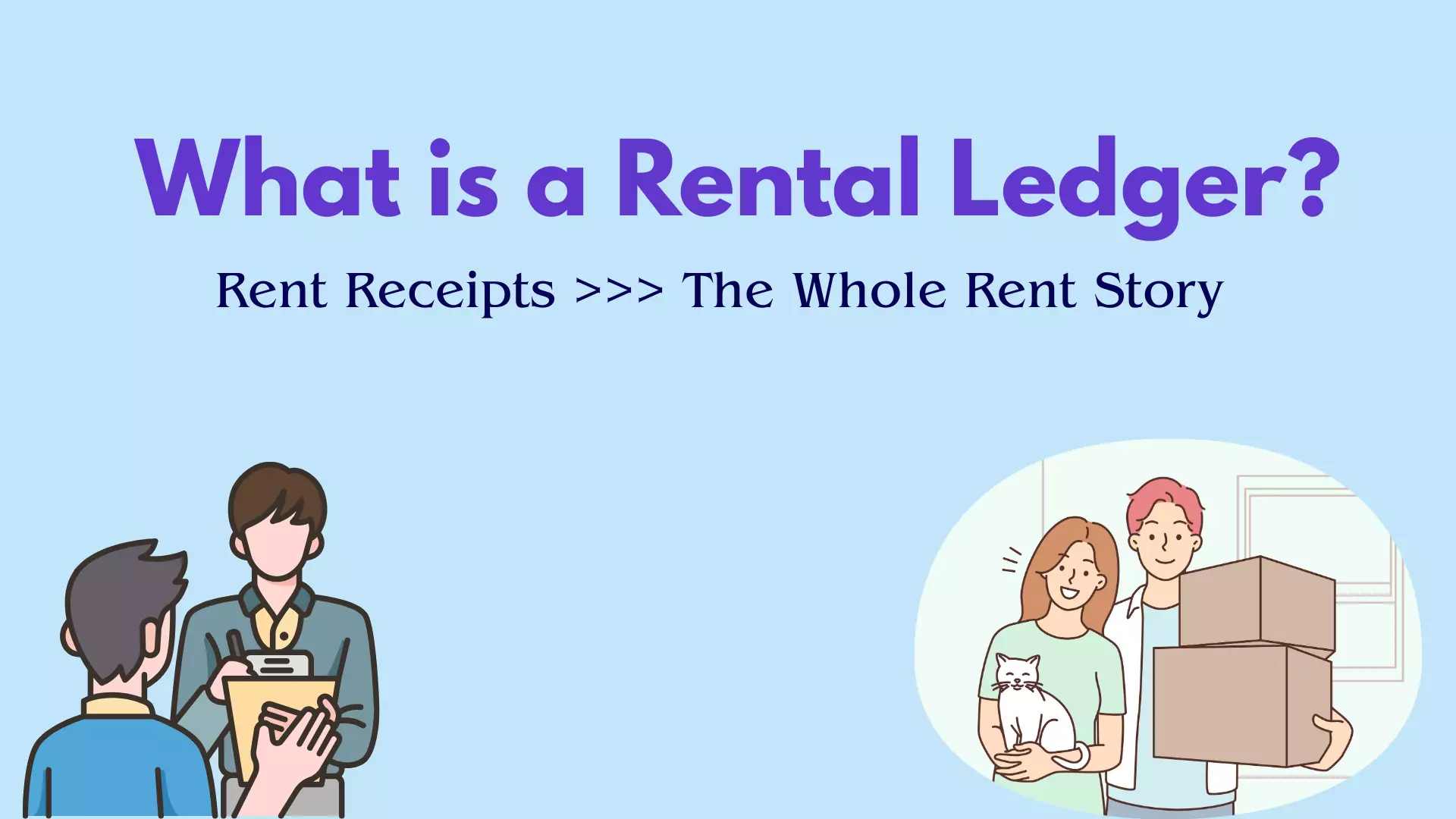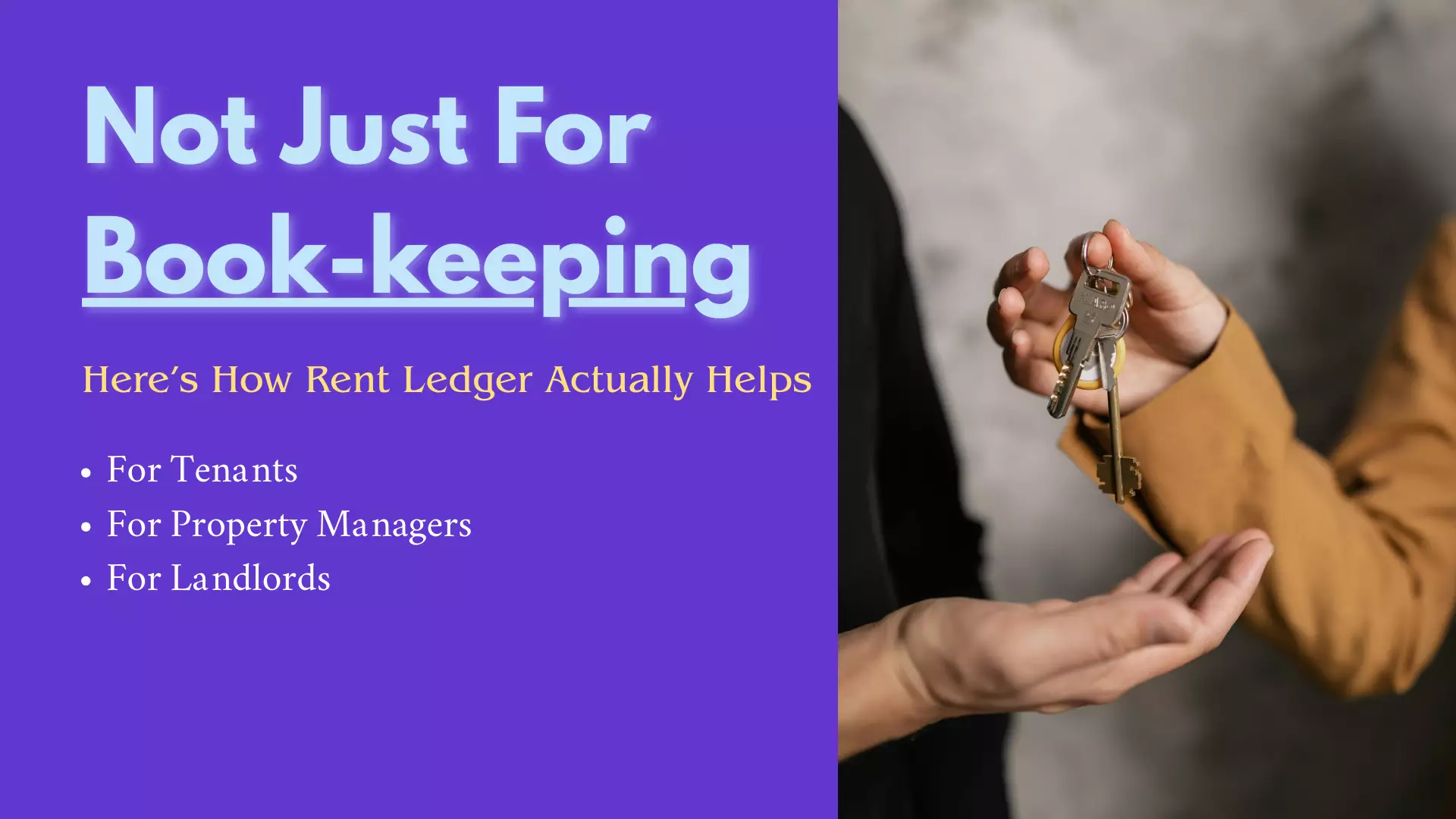Rental Ledger Explained: How Tenants & Landlords Can Use It?

When it comes to rental affairs, there are a lot of challenges to maintaining a healthy and long-term relationship between a tenant and a private landlord or property manager. But overcoming those challenges ain’t a big deal in this era of continuous advancements and helpful tools. Most of the potential problems between two parties in real estate are related to payments. So, what if there’s a written record of all payments? It’s commonly known as a “Rental Ledger“.
A rental ledger is a win-win for both (tenant and the landlord) in case of any issues. That’s why it’s considered a necessity by experienced property managers. So, we have compiled all the information related to the rental ledger for you in this article, i.e., what it is, how it works, what the benefits are, etc.
What is a Rental Ledger?
To understand the importance and benefits, you must know the rental ledger meaning, its benefits, and how it works. It is a document that records all the payments (for rent or other purposes) made by the tenant with specific details. It’s also known as a tenant ledger or lease ledger. If there’s a property manager between you and your landlord, the manager will most likely take care of these records.

A decade ago, the tenant ledger would be a physical document, but nowadays agencies or even private landlords use different softwares to record all the payments by their tenants. You must be thinking, why should I care (if you’re a tenant). Well, you definitely should care about it in any given case (more on that later).
The details of a rental ledger can vary from software to software, but here are a few points that are usually mentioned on the ledger:
1. Names: The name of the tenant and landlord.
2. Total Rent: The amount that you and your landlord agreed to as a payment for using their property (Usually termed as “Rent” or “Prorated Rent” as the case may be).
3. Lease Start and End Date: The date when your contract officially started with the tenant and the date when it will end.
4. Date of Payment: The date you paid the rent for that month.
5. Payment Method: The method you used to pay the rent (online, check, or cash).
6. Balanced Due: If there’s any previous payment that has not been made by the tenant.
7. The Receipted Date: The date when the rent was received by the landlord or the property manager.
8. The Receipt Number: The number of your receipt, depending on the months you’ve been staying at that place.
9. The Type of Payment: If you pay for the water, gas, or electricity bills apart from the monthly rent, it would be recorded separately.
How is a Tenant Ledger Used?
Without an inch of doubt, a rental ledger is equally crucial for tenants, property managers, and landlords. Because it’s one of the most vital documents for everyone in their respective areas. Let’s look at its usage by each party in a detailed way.
1. Tenants
The tenants who are regularly vacating different properties know the importance of the written data of their previous rental records. There are a couple of reasons listed below why the lease ledger is important for a tenant:
2. Property Manager
As someone who have made a living through managing someone’s real estate on their behalf, a lease ledger really enhances their services because they can:

3. Landlords
Tenant ledgers are as crucial for a landlord as for a tenant and property manager. Here are 5 main reasons why:
How To Get A Rental Ledger From Private Landlord?
As a tenant, you don’t need to hesitate in demanding a rental ledger from your landlord or property manager (if you communicate through a third person). You can either ask for a ledger in written or verbal form at the beginning of the rental contract. However, if you want a copy of the document in the middle of your contract, there should be no issue from the landlord or the real estate agency.
Ideally, the landlord will give you a copy of the tenant ledger within 7 business days. Even if you need copies of other payment receipts, you can ask for them too. If the landlord refuses to give you the tenant ledger, you can contact a dispute resolution service or consult a lawyer.
The Bottom Line
Whether you’re a tenant, private landlord, or a professional property management agency, a rental ledger isn’t an option but a dire need. It will bring clarity, accountability, and peace of mind to both parties. Tenants often tend to overlook the importance of a tenant ledger, but here’s the thing: you can successfully get any property at a reasonable rent if you show a clean payment history with the previous landlords. Likewise, the landlords can optimize their property value if its payment record has been consistent with the tenants.
Even if this is the first time you have read about it, don’t let it slide like that. This article has been written to raise awareness among tenants and landlords. Now, it’s time to create your tenant ledger: either physical or online. If you’re opting for online, you can use different softwares that already has the system in place.
